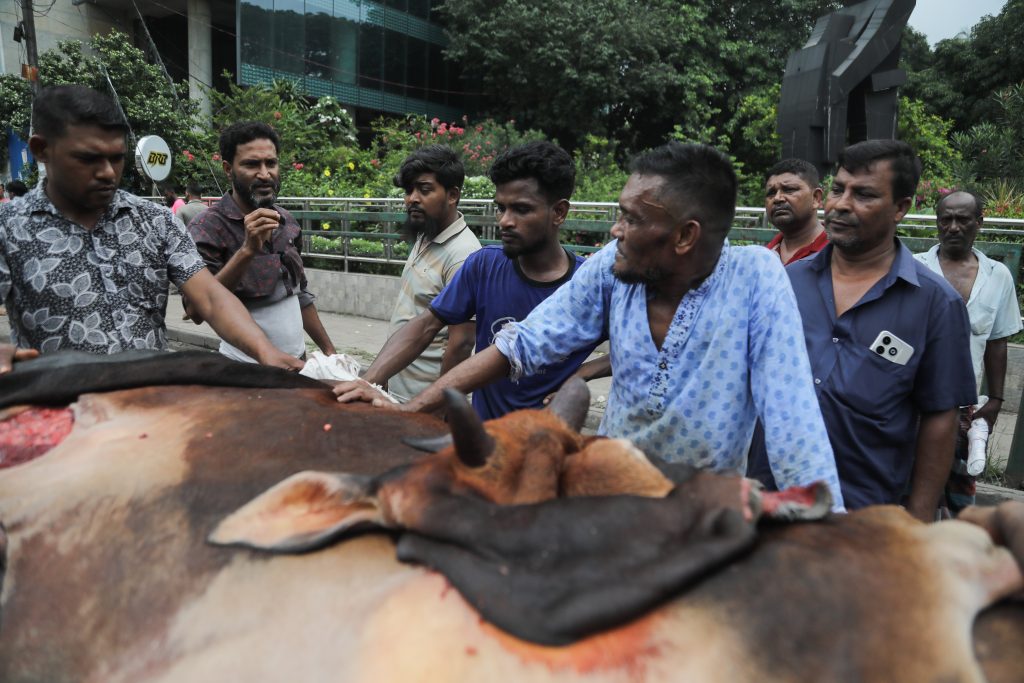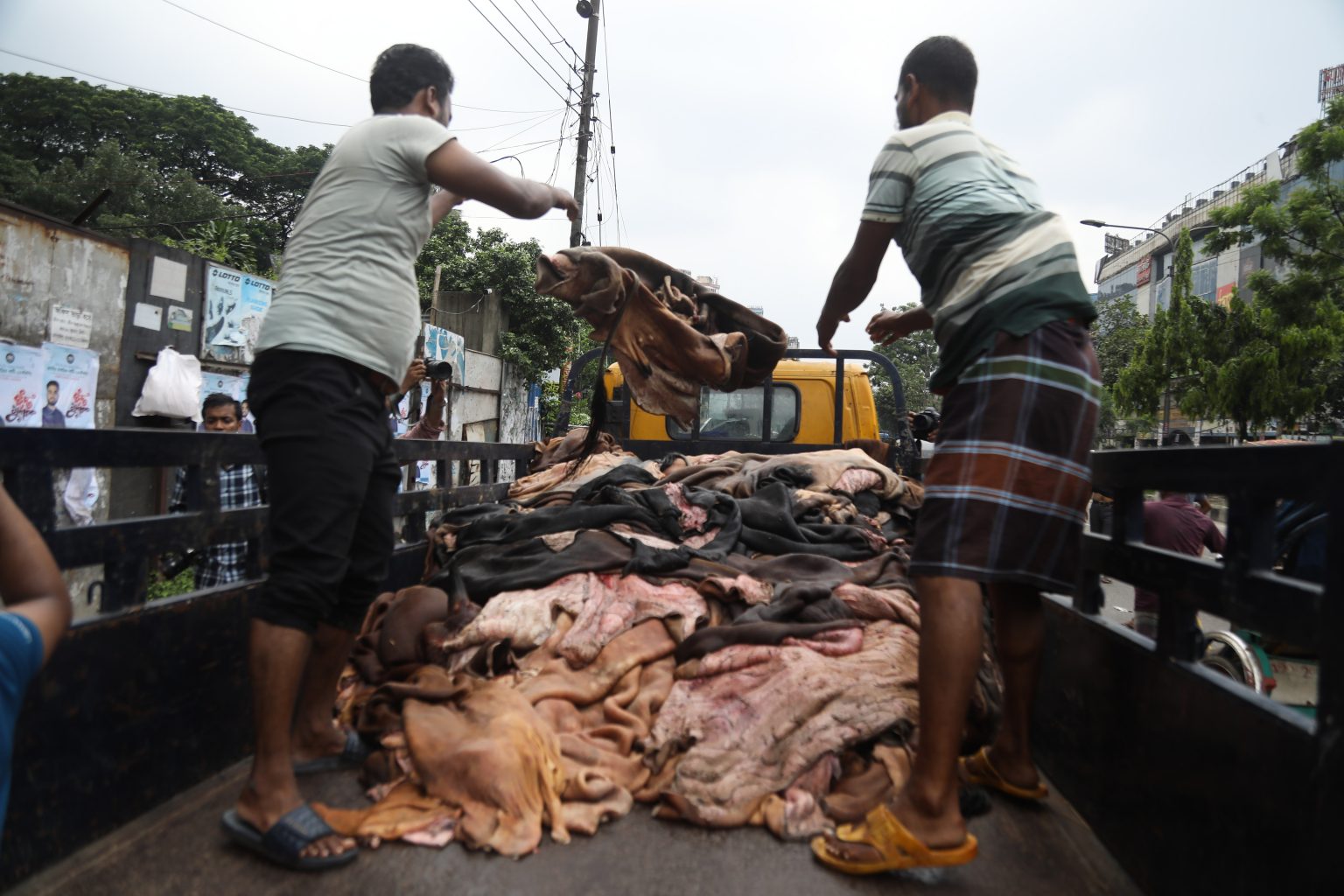Rawhide collection from sacrificial animals has officially started at the Savar Leather Industrial City in Hemayetpur on the first day of Eid-ul-Adha. Large quantities of rawhide are being transported from Dhaka and surrounding areas to various tanneries within the industrial zone.
From Saturday afternoon, trucks and pickup vans loaded with rawhide have been arriving at the factories in Jhauchar area of Hemayetpur. Workers at the tanneries have been seen busy handling the rawhide, which is being preserved using salt and other chemicals.
A significant number of the hides are also coming from local madrasas and orphanages.
According to data from the Bangladesh Small and Cottage Industries Corporation (BSCIC), over 10 million rawhides are expected to be collected and processed at the tanneries this Eid season.
To manage the massive workload efficiently, BSCIC has implemented several measures. Law enforcement personnel are on duty to ensure security and smooth operations at the site.
The leather sector, one of the country’s key export industries, relies heavily on Eid-ul-Adha for rawhide supply, making this seasonal operation critical for the industry’s annual production cycle.

Earlier on the day, students of various madrasas and orphanages across Dhaka and nearby areas began collecting rawhides. With seasonal traders largely absent due to low market prices, many individuals were seen voluntarily donating hides to religious institutions. Some madrasas are also actively purchasing hides.
By midday, piles of rawhides were seen outside numerous madrasas and orphanages. These hides are later sent to tanneries in Savar for processing. Tannery owners have been maintaining communication with madrasa and orphanage authorities through their representatives to ensure timely collection.
Millions of animals were sacrificed across the country this Eid, and rawhide collection is now in full swing. A significant portion of Dhaka’s hides are first brought to the Science Laboratory area, where traders and middlemen started arriving with rawhides from 10 AM onward.
From around noon, hide-laden auto-rickshaws and small vehicles began reaching the Savar leather industry zone. However, intense haggling continues at the warehouses. Buyers are offering Tk 600–700 per piece for cowhides, depending on quality, while goat hides are selling for as low as Tk 50. Both parties are exchanging blame over the falling prices.
According to the Savar Rawhide Traders’ Association, it is not feasible to buy hides at the government-mandated price. Md. Emdadul Haque Sohrab, Organizing Secretary of the association, stated, “We cannot purchase hides at the fixed rate because we also have to factor in the cost of salt and labor. If we follow the government rate, we’ll incur losses.”
This year, the government set the minimum price for salted cowhides in Dhaka at Tk 1,350 and Tk 1,150 outside Dhaka. Larger hides are expected to fetch higher prices. However, the ground reality reflects a disconnect between official rates and actual market transactions.


